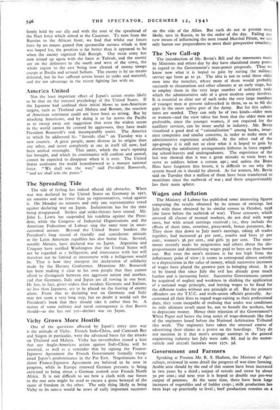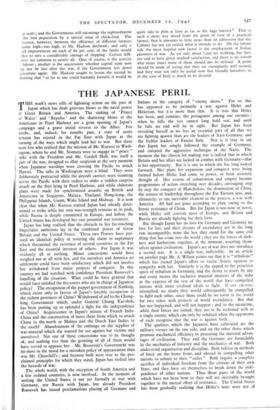Government and Farmers
Speaking at Preston Mr. R. S. Hudson, the Minister of Agri- culture, reviewed in some detail the progress of war-time farming. Arable area should by the end of this season have been increased in two years by a third ; output of cereals and straw by about 5o per cent.; and next year it is hoped to double our pre-war output of potatoes. At the same time, there have been large increases of vegetables and of fodder crops ; milk production has been kept up practically to level ; beef production remains on a
ge scale ; and the Government will encourage the replenishment the hen population by a special issue of chick-feed. The Terence, however, between the efficiency of different farmers mains high—too high, as Mr. Hudson declared ; and only a mil improvement on each of 6o per cent. of the farms would ffice to save a considerable tonnage of shipping. Certain diffi- ilties are common to nearly all. One, of course, is the scarcity labour ; another is the uncertainty whether capital sunk now lay not be lost after the war, if the Government lets down griculture again. Mr. Hudson sought to lessen the second by ffirming that " so far as one could humanly foretell, it would be quite safe to plan at least as far as the 1945 harvest." That is such a short way ahead from the point of view of a practical farmer, that it amounts to little more than an admission that the Cabinet has not yet settled what it intends to do. On the labour side the most hopeful new factor is the employment of Italian prisoners of war. As yet only about 7,000 are working, but they are said to have given marked satisfaction, and there is no reason why many times more of them should not be utilised. A point should be made of seeing that they are exemplarily well treated, and they may not only be useful now but friendly hereafter, as in the case of Italy is much to be desired.



























 Previous page
Previous page